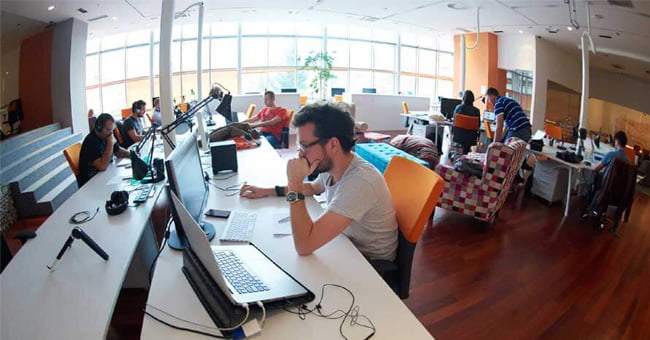There are several considerations to be made and several corners to be cut when establishing a start-up. With limited resources and limited funds, start-ups that do not have access to a private office space often kick off operations without a viable office space. While prominent examples of companies such as Apple Inc. that have achieved massive success after having started off without an office space, there are tangible benefits to investing in an office space when you start your venture. If your start-up has to deal with clients regularly, for example, having an office space will make clients more comfortable in interacting with your business. It will also help bring in new clients if potential clients have a physical location where they can approach your business.
Even if the nature of your business does not require catering to clients, start-ups are often in need of new investors. Having an office makes it easier for investors to judge the nature of your work and makes them more likely to consider your start-up as an investment opportunity.
With these factors in mind, it is crucial to find the right type of office space for your start-up.
1. Cost
The very first factor to be considered when finding the office space for your start-up also happens to be the very first deterrent for a lot of start-ups, when it comes to finding a proper office space. Instead of taking on the cost of renting or even sub-renting a small space, you can start operations in a co-working facility that lets you rent space in a seat by seat basis. At places such as InstaOffice, for example, you can not only rent more seats when the need arises, you can also rent meeting rooms on an as needed basis.
2. Location
Location is often a crucial detail that people have no choice but to overlook when finding an office space in a crowded city. Start-ups may have an especially hard time securing an office space in a prime location. Thankfully, many prominent co-working facilities operate out of locations that are well-known, are easy to commute to and are perfect for start-ups.
3. Management
With limited resources and manpower, managing an office can be quite the challenge for a start-up. Issues like security, especially, can be quite a hassle for the management of a start-up to keep a tab on. Offices and co-working spaces that come with a management to take care of hassles like security, cleaning, utility payments and staff management are a must for any new start-up, so they can maximize their productivity.
4. Commitment
The work done in start-ups can often be quite dynamic in nature. Considering that fact, along with the fact that a new business is likely to go through several changes in its first few years, it is important not to commit to a long-term lease. Short terms sub-lets and co-working facilities let start-ups keep their options open and change their work environment according to their changing needs.
5. Ambience & Environment
While it may not seem like much, the ambience of your workplace can have an immense impact on the work you do. Your start-up’s first office space should not only be in a healthy and well set-up facility, it should be lively, vibrant and reflect the kind of output you expect out of your business.

